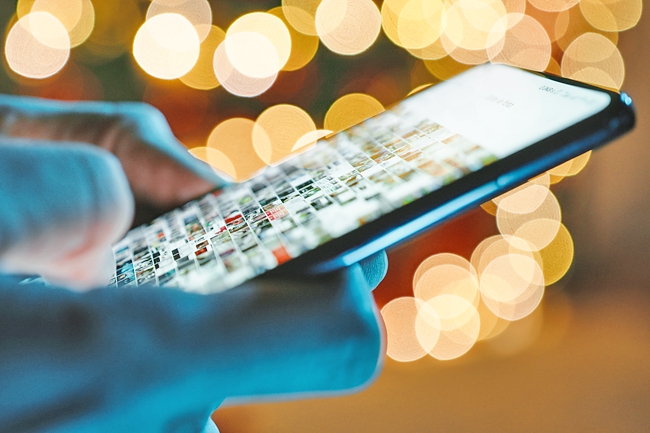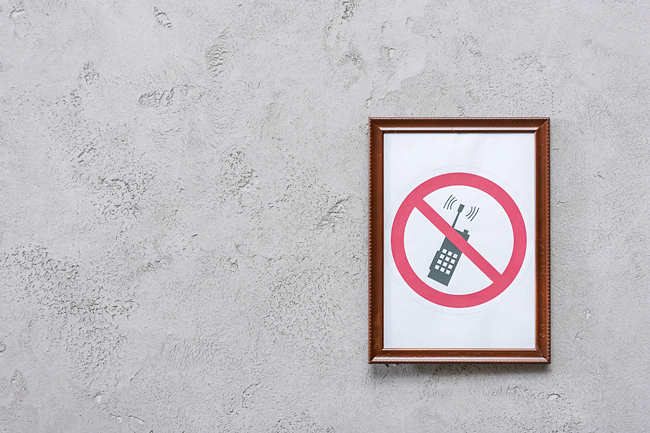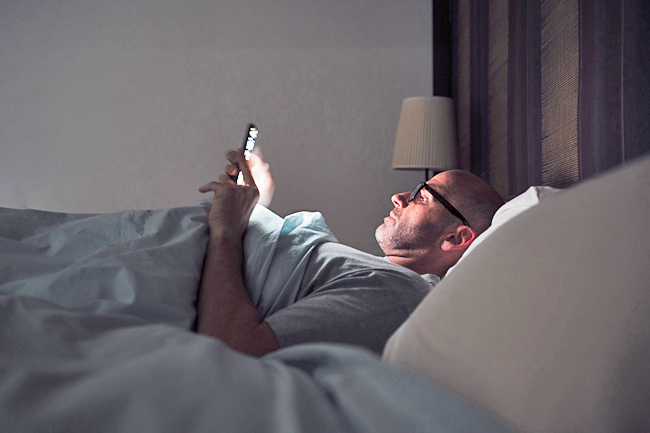Shira Ovide
THE WASHINGTON POST – Apps play tricks on you to turn an activity into a habit.
Snapchat and Wordle encourage repeat use with “streaks”, or bragging rights for how many consecutive days you’ve used the apps.
You might feel motivated to take a walk to close your Apple Watch’s digital rings, which reward daily physical activity.
To nudge you to keep taking language lessons, Duolingo has leader boards comparing how you’re doing with others.
It’s not necessarily a bad thing to encourage healthy behaviours such as exercising or playing word games. But even a good habit can cross the line into compulsive overuse.
Here’s how to recognise when your tech habit might be an unwelcome obsession, and practical steps for you to take back control.



DO A COST-BENEFIT ANALYSIS
It’s hard to be mindful of why we do what we do. That’s why we need to try doubly hard to do self-assessments of how features such as streaks or leader boards are helping and hurting us.
“On balance, does the behaviour they inspire in you contribute to or detract from your welfare?” said author of Irresistible: The Rise of Addictive Technology and the Business of Keeping Us Hooked Adam Alter.
A promise of a “badge” for exercising more with the Peloton app could motivate you when you might otherwise feel lazy, Alter said. But if you’re so motivated by rewards that you ignore signs your body needs a rest, then it might be an unhealthy compulsion.
If you’re concerned that a loved one is becoming obsessed with a digital habit, you might find a calm time to discuss your worry and how you’ve seen the effects, suggested psychiatrist and author of Dopamine Nation: Finding Balance in the Age of Indulgence Anna Lembke.
You might say to your boyfriend, for example, that he disappears into his phone every time you have a conversation.
BUILD IN ‘CHEAT DAYS’
For three years, Alter said, he was compulsive about running 100 miles a month – even squeezing in late-night jogs on his treadmill and running through injuries. He was forced to step back after a recent illness.
Alter said he felt relief from his forced break. Doing your favourite activity without a goal can be liberating, he said. It can also help to schedule days off from our habits – whether it’s running, reading the news or scrolling Instagram.
Alter called these scheduled breaks “cheat days”, like a day off from a strict diet.
TRICK YOURSELF
Author of the book Indistractable: How to Control Your Attention and Choose Your Life Nir Eyal said that he and his wife were glued to their devices at bedtime and that it was ruining their sleep.
So Eyal bought a cheap gizmo that plugged into an electrical outlet and automatically shut off his home Internet router at 10pm each night.
Eyal or his wife could have dragged themselves out of bed to turn their WiFi back on.
But requiring a little effort was enough to break their unwanted bedtime scrolling, he said. (In a different hack, one person curbed the habit of opening TikTok by installing an app that requires waiting six seconds before videos play).
This kind of self-trickery isn’t intended for people who have a more serious unhealthy tech habit that is similar to drug addiction.
Lembke said that when she treats people with addictions to video games or apps, she recommends a one-month abstention.
That’s sufficient time to reset the cycle of reward and pain from a digital addiction that warps our brains.
A one-month break might not be possible or necessary for your tech habit. Lembke suggested that a day or a week off might help.
When you pick up that activity again, make a specific plan for yourself.
If Twitter is a problem for you, you might decide that you’re fine using Facebook but not Twitter. Or you might choose to stop using your phone entirely at 6pm each night.
SCHEDULE A LIMITED AMOUNT OF TIME FOR YOUR HABIT
Especially for young people, it can be helpful to plan in advance activities that might be a distraction, Eyal said.
Eyal said that if your teen knows he’s allowed one hour on YouTube at 7pm, then he can relax without ruminating on when he’ll be able to hop on his favourite app.
Eyal said he takes about 10 minutes each Sunday to block time on his weekly calendar for work obligations, family time, and activities like reading a book or exercising.
There are even four hours booked each weekend for “planned spontaneity” with his family to make sure that time isn’t interrupted.
WHAT ABOUT DIGITAL TIMERS?
Your iPhone or Android phone tracks how much time you spend using specific apps and lets you set time limits.
TikTok recently added a pop-up notification for teens who spend more than an hour a day with the app.
Lembke said those features are not effective at cutting the amount of time we spend with an app habit.
CURBING TECH OVERUSE CAN’T BE ONLY YOUR RESPONSIBILITY
Lembke said that tech companies, schools, social institutions and governments all have a responsibility to help reset norms about technology use.
“If we just leave it to individuals or parents, that’s crazy. That’s too much on the individual,” she said.
Lembke commended schools that have experimented with locking up students’ phones so they can’t use them during the school day.
She also applauded government restrictions in some countries that limit the time young people are allowed to spend playing video games or using social media apps.
“Society is always protecting people from themselves,” she said.
ONE TINY WIN
It can be too tempting to grab your phone at bedtime for a quick peek at email and find yourself still scrolling two hours later.
Some research has found that people are happier if they charge their phone overnight somewhere other than in the bedroom.
The Washington Post technology columnist Geoffrey A Fowler bought this pretty USD40 box that he keeps in his office for nighttime charging of his family’s devices.
Like Eyal’s automated WiFi shut-off, parking your distracting gadgets away from your bedroom isn’t a magical cure for tech overuse.
But putting speed bumps in the way of bedtime phone scrolling worked for Geoff, and it could be helpful for you.



















































